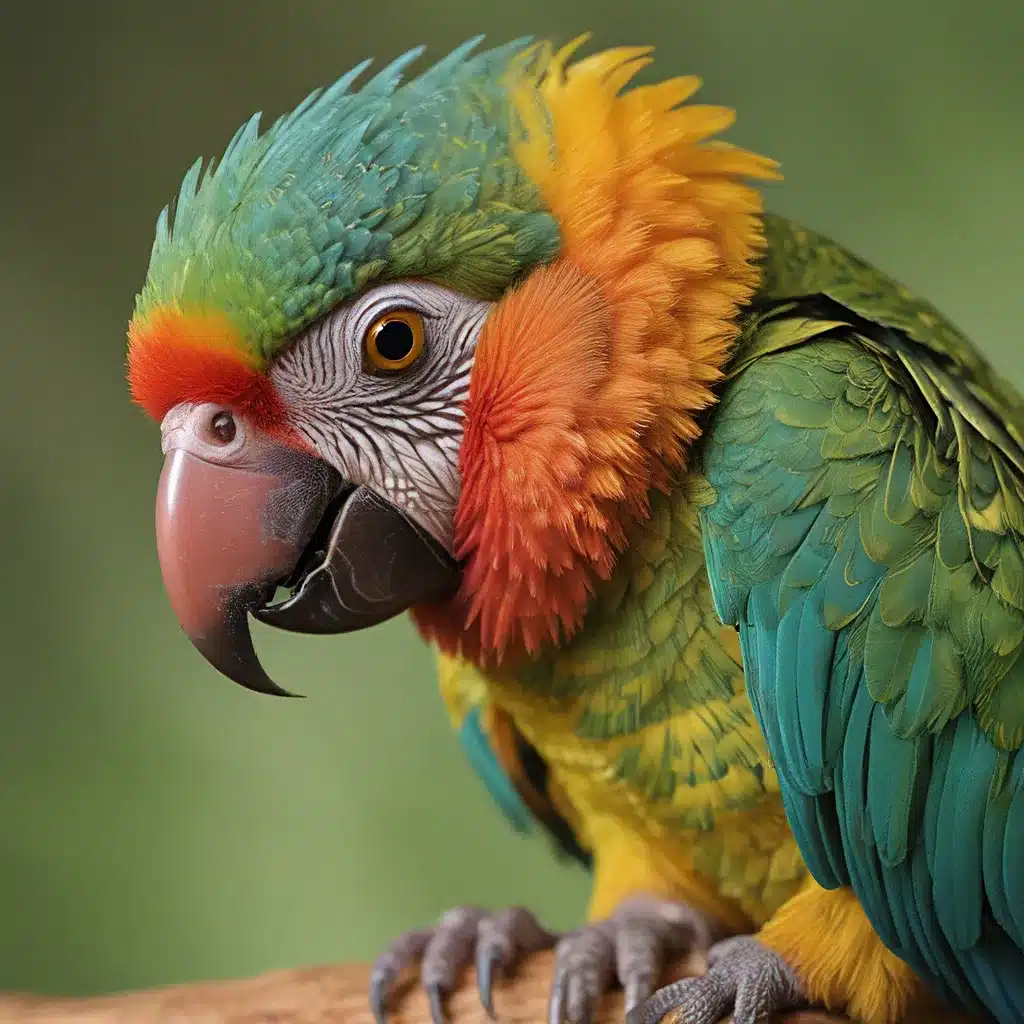
A Perplexing Conundrum
Ah, the world of exotic pets – a realm where the lines between fascination and ethical responsibility can sometimes blur. As I delve into this captivating topic, I can’t help but be struck by the perplexing nature of it all. On one hand, the allure of these unique, often mesmerizing creatures is undeniable. Who wouldn’t want to share their home with a majestic macaw or a sleek sugar glider? But on the other hand, the ethical implications of exotic pet ownership are not to be taken lightly.
Recent scientific evidence suggests that even the most “simple” of animals possess a level of consciousness and sentience that demands our utmost consideration. And yet, as the executive director of the Reducetarian Foundation points out, “Most people aren’t concerned with whether factory farmed animals feel pain.” So, how do we reconcile our desire for exotic companions with the ethical imperatives of ensuring their wellbeing?
The Ethical Tipping Point
The answer, my friends, lies in sustainable breeding strategies.
You see, the world of exotic pets is a complex tapestry, woven with threads of both wonder and responsibility. On one side, we have the breathtaking diversity of species that captivate our imaginations and enrich our lives. But on the other, we must confront the harsh realities of irresponsible breeding practices, habitat destruction, and the often-overlooked suffering of these unique creatures.
As scientists have made clear, we can no longer turn a blind eye to the sentience of animals, whether they be factory-farmed or exotic pets. Our ethical obligations demand that we listen to the experts and take action to ensure the wellbeing of all creatures under our care.
Sustainable Breeding: The Path Forward
But how do we begin to address this conundrum? The answer lies in the development of sustainable breeding strategies – a delicate balance between preserving the wonders of exotic species and safeguarding their welfare.
Sustainable breeding is not just a lofty ideal; it’s a necessity.
By adopting responsible practices that prioritize the health and happiness of our exotic companions, we can ensure that these remarkable creatures continue to grace our lives for generations to come. This means carefully considering the environmental and genetic factors that contribute to the well-being of each species, as well as collaborating with experts to develop innovative breeding programs that minimize suffering and maximize the chances of successful, ethical captive breeding.
The Exotic Pets Ecosystem: A Holistic Approach
But the journey towards sustainable exotic pet ownership doesn’t stop there. It’s a multifaceted endeavor that requires us to take a holistic view of the entire ecosystem.
As the United Nations’ Brundtland Commission has emphasized, sustainability is not just about environmental preservation; it’s about ensuring the wellbeing of all living beings, both now and in the future. And in the world of exotic pets, this means considering not just the breeding practices, but also the habitats, the supply chains, and the overall impact of our actions on these remarkable creatures.
It’s a complex web, to be sure, but one that we must navigate with care and diligence.
Striking a Balance: Enrichment and Responsibility
At the heart of sustainable exotic pet ownership lies a delicate balance between enrichment and responsibility. On one side, we have the joy and wonder that these creatures bring into our lives, captivating our senses and sparking our curiosity. But on the other, we have the solemn duty to ensure that our exotic companions are not merely objects of our fascination, but living, breathing beings deserving of the utmost care and consideration.
It’s a balance that requires us to think deeply about the needs and behaviors of each species, to collaborate with experts and researchers, and to make tough decisions that prioritize the wellbeing of our beloved pets over our own desire for novelty and excitement.
The Ethical Imperative: A Call to Action
And so, my friends, I implore you: heed the call of the ethical imperative.
As the caretakers of these remarkable creatures, we have a responsibility to ensure that our love for exotic pets is matched by our commitment to their welfare. It’s a responsibility that demands rigorous research, collaboration with experts, and a willingness to constantly reevaluate and refine our practices.
But the rewards, oh, the rewards! For in doing so, we not only ensure the continued existence of these wondrous species, but we also elevate our own humanity, demonstrating that our capacity for compassion knows no bounds.
Conclusion: A Future of Ethical Exotic Pet Ownership
So, let us embrace the challenge before us, and forge a path towards a future where exotic pet ownership is synonymous with ethical, sustainable, and responsible practices. Where the joy of these remarkable creatures is matched by the reverence and care we afford them.
After all, the fate of these exotic companions rests in our hands. Let us not fail them.
And as you consider adding an exotic pet to your family, I invite you to visit GoldenExoticPets.com, where you’ll find a wealth of resources and guidance to help you navigate this journey with the utmost care and consideration.
Together, let us embark on a new era of exotic pet ownership – one that celebrates the wonders of these incredible creatures while upholding the highest standards of ethical responsibility.

